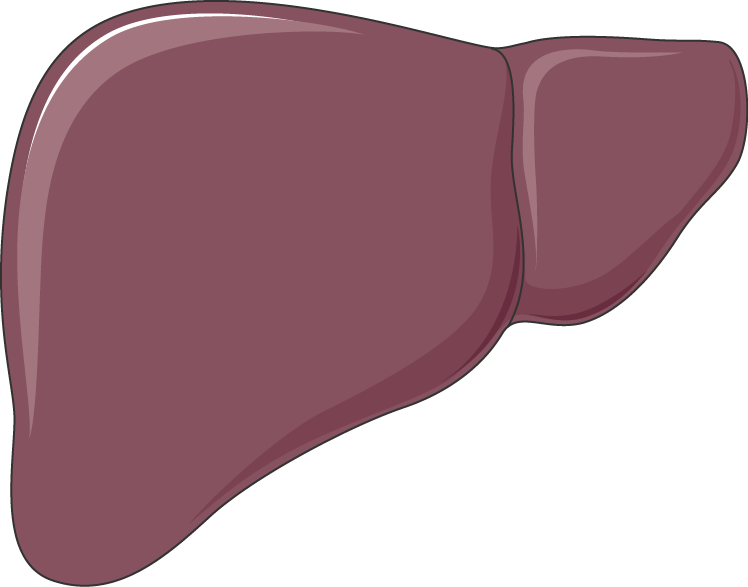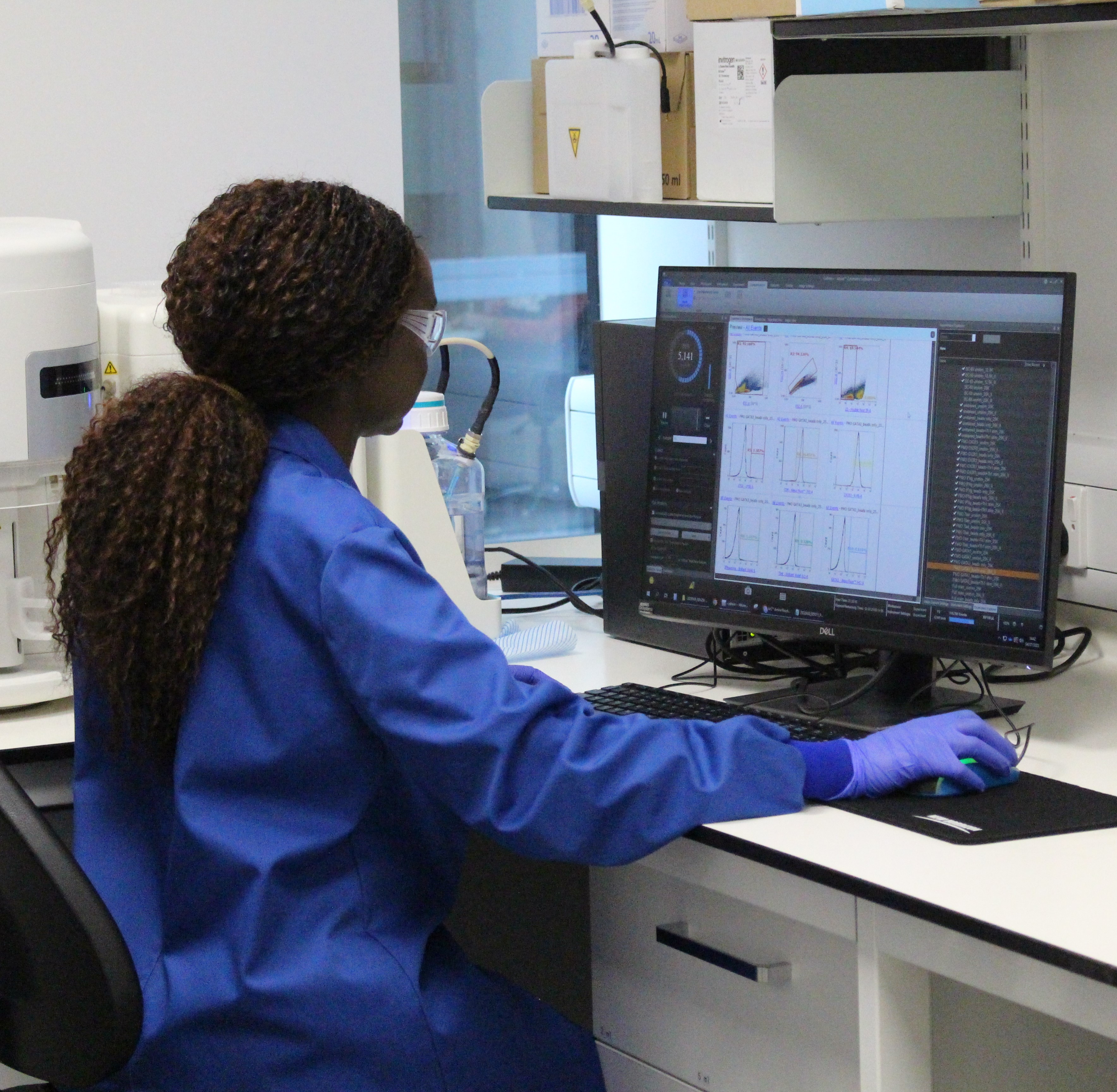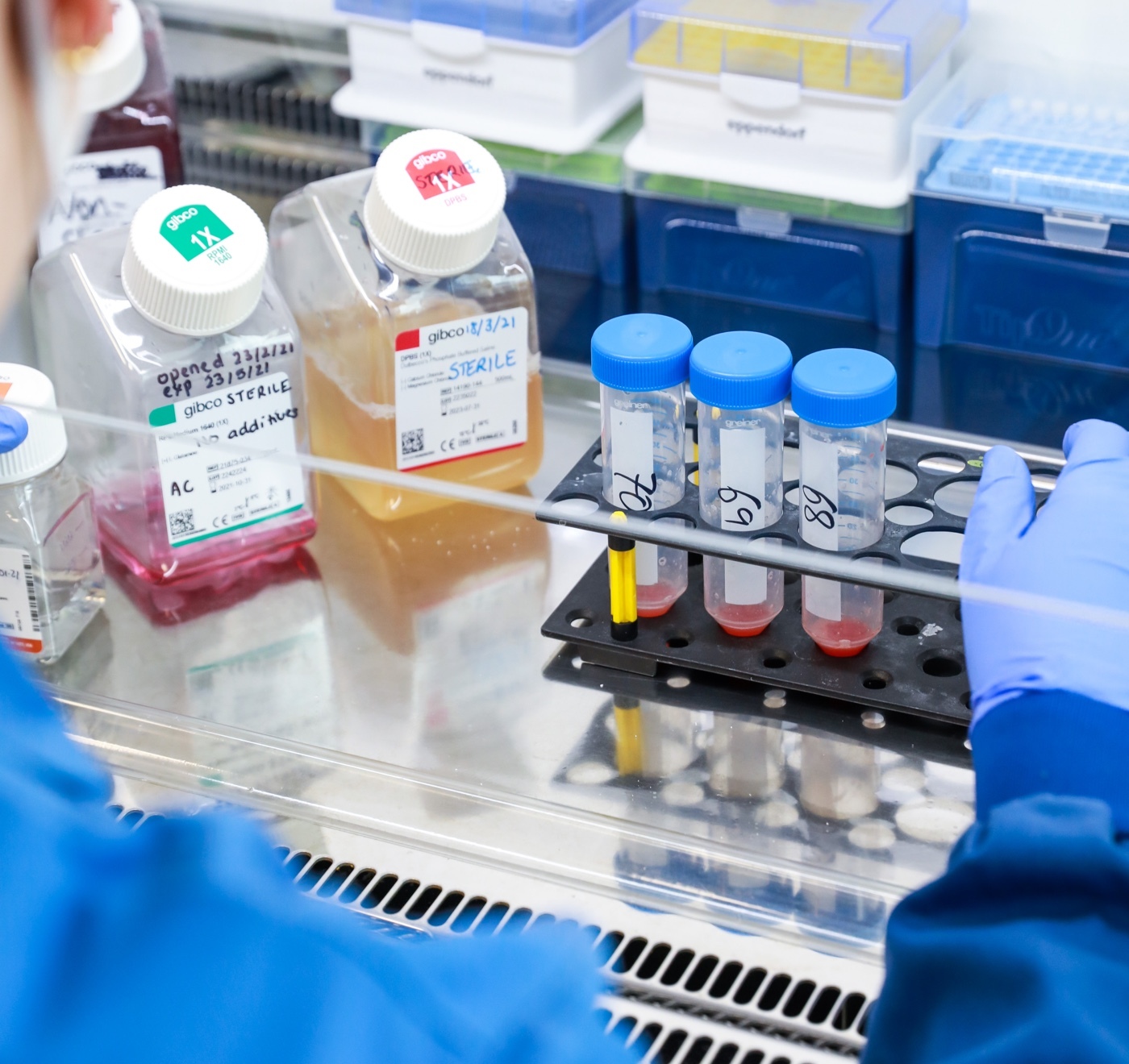Other ways blood is used
Your donation could be used to save lives in less direct ways, such as developing new treatments for medical conditions like arthritis and multiple sclerosis, researching diseases including liver failure, and training police sniffer dogs...
NHS Blood and Transplant’s core mission is to save and improve lives. While most donated blood is used to treat patients, some donations are unsuitable for clinical use. These blood products can still be useful, though.
Through a service we call Non-Clinical Issue, we can send this blood to approved organisations for a range of approved work: diagnostics and developing new medicines and therapies, for example.
Treating acute liver injury
 Acute liver injury or failure is a loss of liver function that occurs over a period of days or weeks. It can be caused by a wide variety of diseases, such as infections, or injuries like overdoses of paracetamol.
Acute liver injury or failure is a loss of liver function that occurs over a period of days or weeks. It can be caused by a wide variety of diseases, such as infections, or injuries like overdoses of paracetamol.
(Picture: Research using blood is helping to identify future treatments for liver failure)
Acute liver failure is rare but very severe and sometimes fatal. At present, treatments exist to manage the condition and prevent it from worsening but are not able to cure it. In many severe cases, a transplant is required.
Livers require continuous oxygenated blood flow to supply nutrients and remove toxic waste products. Bodily fluids, such as blood, are passed through organs like livers before they are transplanted, keeping them preserved, in a process known as perfusion.
Recent innovation means that livers can now be perfused for more than seven days, allowing injured livers to be observed for longer before treatment, and helping to improve the understanding of how livers repair and regenerate following injury.
An upcoming study at the University of Birmingham also plans to use blood products supplied by NHS Blood and Transplant to build acute liver injury models and identify potential future treatments.
Creating new medicines for rheumatoid arthritis and multiple sclerosis
 To create new medicines, biotechnology company, Sitryx is adjusting the metabolism of white blood cells, altering the chemical changes that happen inside. Their goal is to correct immune cell function to resolve disease.
To create new medicines, biotechnology company, Sitryx is adjusting the metabolism of white blood cells, altering the chemical changes that happen inside. Their goal is to correct immune cell function to resolve disease.
(Picture: Analysis of experiments using blood to develop new medicines)
The immune system is made up of various types of cells. Different aspects of the metabolism of these cells can be altered, which can lead to the development of different diseases. Therefore, by choosing to intervene at a particular point of metabolism, the cell type implicated in a particular disease, such as rheumatoid arthritis or multiple sclerosis, can be targeted and the disease prevented.
The ability to perform this vital research is wholly dependent on access to a regular supply of high-quality blood cells sourced from leukocyte filter cones, surplus to the platelet donation process.
Developing safe and effective medicines is a multi-disciplinary activity and takes years of careful experimentation and thought. A comprehensive package of data is needed to give scientists and clinicians confidence that drug candidates are likely to work and are safe for humans to take.
None of this would be possible without the generous donation of blood – it is the lifeline to creating breakthrough medicines.
Whilst most donations will be used clinically, some will inevitably be unsuitable to be given to patients. There are many reasons for this - blood units may be under-weight upon collection or there may have been a quality issue.
Use of donated blood for non-clinical work is subject to NHS Blood and Transplant policy and UK regulations. Access to these blood products is managed by a dedicated team within NHS Blood and Transplant, including clinical scrutineers, who ensure that each request is from an organisation with a legitimate need for the donation and an intended use that is in line with donor consent, NHS Blood and Transplant policy and regulations (including ethics considerations where required).
(Picture: Research using blood)
Customers come from sectors including research, laboratory quality assurance schemes, medicine development, toxicology and validation. Typical uses include:
- Research into the latest advancements in medical treatments for illnesses and conditions such as COVID-19, cancer, arthritis, diabetes and many more
- Education and training
- Validating treatment and diagnosis services
- Production of blood test kits and test reagents




